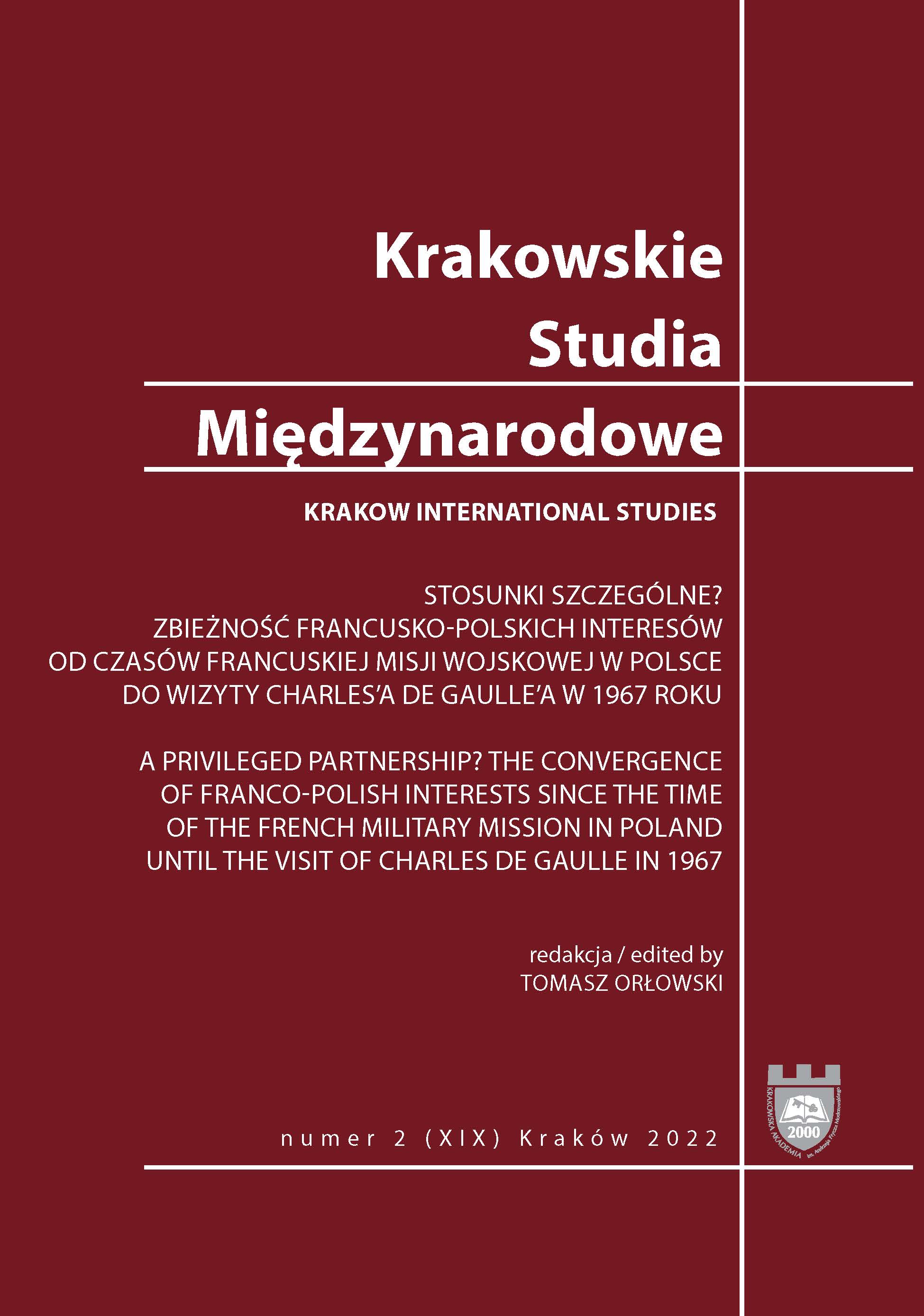L’alliance franco-polonaise et la montée des périls dans la seconde moitié des années 1930
The Franco-Polish alliance and the rise of peril in the second half of the 1930s.
Author(s): Isabelle DavionSubject(s): Politics / Political Sciences, Politics, History, Recent History (1900 till today), Military policy, Interwar Period (1920 - 1939), Peace and Conflict Studies
Published by: Oficyna Wydawnicza AFM Uniwersytetu Andrzeja Frycza Modrzewskiego w Krakowie
Keywords: foreign policy; Franco-Polish relations (1918–1939); Józef Beck; Second Republic diplomacy; Quai d’Orsay; Eastern Pact (1934–1935); Sudetenland crisis (1938);
Summary/Abstract: France considered the Franco-Polish alliance of 1921 to be part of a collective security system that included consultation with Czechoslovakia in the event of German aggression. Its position also changed because of the lack of coordination between the Quai d’Orsay and the General Staff, as it was impossible to reconcile the network of alliances in Central Europe with the preparation of a strictly defensive war. The system of collective security deteriorated in the 1930s, and became increasingly distorted thereafter. The right of peoples to self-determination was instrumentalized in the crisis over the Polish minority in Czechoslovakia, which intensified from 1937. The potential for Franco-Polish cooperation was severely undermined by the Sudetenland crisis. Bonnet sought to blame the Polish side in order to exonerate France and justify his own conciliatory stance towards Munich. In the Quai d’Orsay, on the other hand, there were tendencies aware of the devastation of Franco-Polish relations that sought to assess what could be salvaged from them.
Journal: Krakowskie Studia Międzynarodowe
- Issue Year: XIX/2022
- Issue No: 2
- Page Range: 101-116
- Page Count: 16
- Language: French

